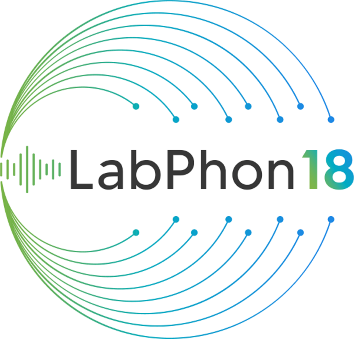
Since March 2020, we have all been faced with a rapidly changing environment, as we adjust to life in a socially-distanced world. For researchers in laboratory phonology, this has impacted not only the methods of our research, but also the topics that we choose to investigate.
The theme of this LabPhon is CHANGE, and the many meanings that CHANGE encompasses. This may include changes in the spaces where we conduct our work, from field-work sites or labs to online sites, and from formal settings to more natural conversations that can be captured in corpora. It may also include changes in time, such as the development of language that occurs across the lifespan, or advances in the analytic approaches we use to understand our data. We propose to break this overarching theme into two broad sub-themes: changes in space and changes in time.
Changes in space
In recent years, constant disruption has forced researchers to look for alternatives to traditional research approaches. This section will discuss how Laboratory Phonologists have endeavoured to explore a changing world, whether by moving research outside the space of the lab, reconceptualizing the notion of “field work”, or by focusing on rapidly evolving phenomena with the help of innovative data gathering techniques.
Field work
The nature of linguistic fieldwork has changed rapidly in the last few years. The pandemic has limited researchers' access to their fieldsites, and made it difficult to work with linguistic consultants in close proximity. This session invites presentations that address the challenges, or the silver linings, of conducting linguistic fieldwork investigations under difficult circumstances, not only because of the pandemic, but also in terms of other forms of natural disasters or political unrests.
Invited Speaker: James Kirby, School of Philosophy, Psychology and Language Sciences, University of Edinburgh
Discussant: Christian DiCanio, Department of Linguistics, University of New York at Buffalo
Online experimentation
Physical laboratories, in which participants show up in person to interact with the experimenter, have long been a mainstay of laboratory phonology research. The pandemic forced the closure of most labs, and the “space” of our research shifted away from these physical locations. In response, researchers innovated new ways of collecting data online, and produced new types of findings. We invite papers that explore the challenges -- and the advantages -- of online experimentation as well as studies that showcase innovative online methodologies in LabPhon research.
Invited speaker: Rachel Theodore, Department of Speech, Language and Hearing Sciences, University of Connecticut
Discussant: Georgia Zellou, Department of Linguistics, University of California, Davis
Corpus phonetics and phonology
Corpus studies collect language data from the spaces in which they naturally occur. Innovations in corpus work are playing a crucial role in testing the predictions of laboratory phonology and also generating new findings of their own, particularly in the areas of typological uniformity, variation, and featural stability. In this session, we will extend the discussion around how new developments in corpus methods influence our conception of phonology.
Invited speaker: Eleanor Chodroff, University of York
Discussant: Yao Yao, Department of Chinese and Bilingual Studies, The Hong Kong Polytechnic University
Changes in time
To study language is to study how it evolves and changes across time. This section is focused on the way phonology evolves across the lifetime in connection with either typical or atypical experiences. It is also concerned with the evolution of the analytical techniques that we use to account for these changes.
Language acquisition and attrition
Phonological knowledge is not static, but changes as we progress from birth, through childhood, adolescence, adulthood and older age. This topic is concerned with the relationship between linguistic experience and phonological knowledge, production, and perception over the lifespan (including speech and language acquisition, the impact of typical aging, acquisition of a second language, or the third language).
Invited Speaker: Megha Sundara, Department of Linguistics, University of California, Los Angeles
Discussant: Charles Chang, Department of Linguistics, Boston University
Diverse trajectories in language development over the lifespan
Although change is constant, not all change follows the same trajectory. This topic focuses on changes to the production and/or perception of speech over the lifespan, encompassing topics such as language disabilities, neurodiversity, and neurodegenerative diseases.
Invited speaker: Carolyn Quam, Child Language Learning Center, Portland State University
Discussant: Alexander Francis, Center on Aging and the Life Course, Purdue University
Changes in analytic approaches
In the past several years, the field of Laboratory Phonology has witnessed rapid and unprecedented advances in statistical modelling, machine learning, and simulation. This session will focus on the best practices currently being developed to deal with new challenges and opportunities in LabPhon, such as the replication crisis or the rise of open science, and the way these techniques are used to promote more robust and reliable research.
Invited Speaker: Timo Roettger, Institutt for lingvistiske og nordiske studier, University of Oslo
Discussant: Jonathan Harrington and Michele Gubian, Institute of Phonetics, Ludwig Maximilians Universität München
